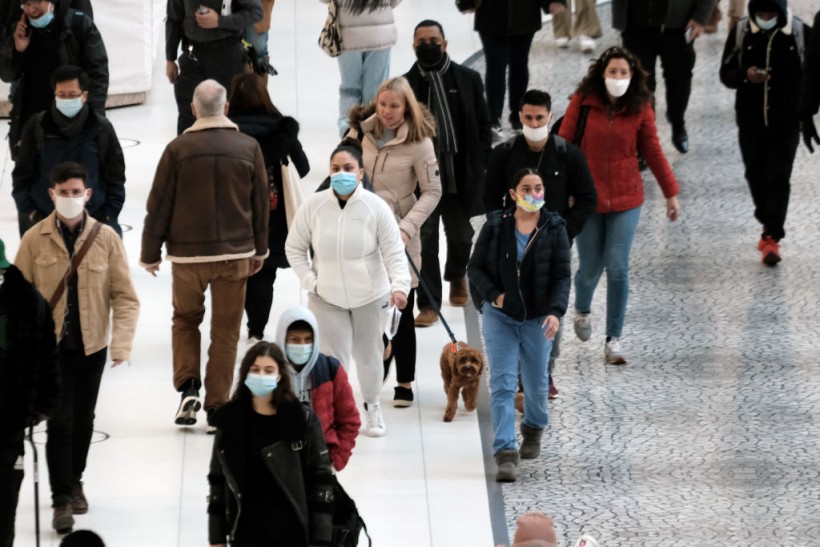A new study regarding the impacts of COVID-19 suggests that individuals who experience shortness of breath following a recovery from the coronavirus may have heart problems. After one year of surviving the disease, heart health status could be infected with minor to severe damages due to the underlying effects of COVID-19, among the possible markers of having a cardiac illness after the recovery is associated with the breathing condition called dyspnea.
Long-COVID Symptoms and Cardiovascular Health of Survivors

NEW YORK, NEW YORK - DECEMBER 13: People wear masks at an indoor mall in The Oculus in lower Manhattan on the day a mask mandate went into effect in New York on December 13, 2021, in New York City. As parts of New York see a surge in Covid cases, New York Governor Kathy Hochul has enacted a new mask mandate with fines up to $1,000 per violation.
University Hospital Brussels expert and author of the study Maria-Luiza Luchian said in a report by the European Society of Cardiology that the results from their analysis could answer the puzzling breathing conditions in patients who managed to overcome the coronavirus and were able to survive one year after being diagnosed. The expert adds that most of the data from their research link through the factors that lower the natural performance in the heart organ.
Since the pandemic surge, experts were able to determine many complications after patients survive COVID-19. The case, known as 'long-COVD,' was previously examined in a comprehensive study published in the journal Scientific Reports, titled "Persistent symptoms and lab abnormalities in patients who recovered from COVID-19."
Cardiovascular illnesses were then confirmed to have manifested in many patients who suffered from the effects of COVID-19. Among the most persistent symptoms of the long-COVID is a heart condition known as dyspnea. The disease could affect an individual's body from mild to severe and often shows up in forms such as shortness of breath, tightening of the chest region, breathlessness, and even suffocation.
The appearance of dyspnea in COVID-19 survivors was observed in many research conducted throughout the months of the pandemic. Among the first studies that were able to recognize dyspnea in the wide variety of long-COVID symptoms was the investigation published in the International Journal of Cardiology, titled "Cardiac involvement in consecutive unselected hospitalized COVID-19 population: In-hospital evaluation and one-year follow-up." This research defined the aspects that support the correlation between subclinical heart illnesses and dyspnea in many long-COVID patients.
Persistent Dyspnea in Long-COVID Patients
The recent study led by Luchian was made possible through the help of 66 patients diagnosed with COVID-19 and hospitalized between the span of March and April 2020. These patients have a healthy heart and were not diagnosed with any heart and lung disease before be4ing hospitalized due to the coronavirus.
After one year of surviving from the coronavirus, the same patients were scanned using spirometry and tomography for both the current condition of the lungs and COVID-induced effects on the respiratory organ. Aside from this, a high-definition and accurate cardiac ultrasound were performed through a novel approach known as myocardial work. The study concluded that 23 patients experienced shortness of breath after being hospitalized with COVID-19. The total number of participants belonged to the age group of 50 and included 67 percent of men.
Luchia said in a Healio News report that their findings revealed persistent dyspnea in one-third of COVID-19 survivors after one year, even if they had no records of cardiovascular or respiratory disease before the coronavirus diagnosis. The study was presented in the EuroEcho 2021, titled "Persistent dyspnea 1 year after COVID - 19 infection in apparently healthy subjects: a potential indicator of subclinical cardiac dysfunction."
RELATED ARTICLE: Low Vaccination Rate May Result to the Next COVID-19 Variant, Possibly Breeding in Papua New Guinea
Check out more news and information on COVID-19 in Science Times.














